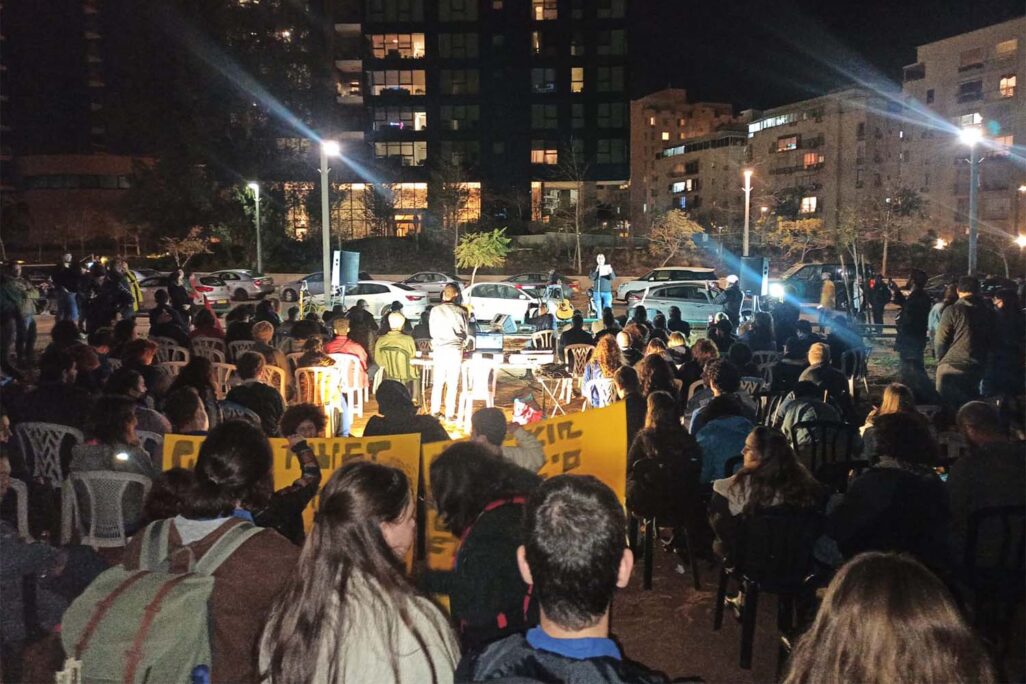
The judicial reform is bad not only because there is nothing in it that will strengthen the value of equality, but also because the reform may actually harm the populations it claims to protect: the Mizrachi population in development towns (settlements built in the 50’s to provide permanent housing for a large influx of Jewish immigrants from Arab countries) that rightly demand equality. It is enough to look at the ideology and discourse of the creators of the reform to understand that there is no message of equality or justice in it, and that it is promoted by capitalists (Forum Kohelet) who want to deepen their grip on the government, as well as politicians who lust for power.
The Supreme Court has indeed failed to promote economic equality in Israel, and the great sin for which it is criticized is its cooperation with predatory policies towards the disadvantaged public in Israel. But even after that criticism of the Court, it is important to say: even the small amount done by the Court is more than what is done by the government to fight inequality, and the reform endangers even that.
There are two laws that can be credited to the Court when they come to discuss reform: the Public Housing Law (the Ran Cohen Law) which was enacted in 1998 but not implemented until the Supreme Court hearing in 2013, and the Lands Case brought to the Supreme Court by the Mizrahi Democratic Rainbow Coalition, a social-justice NGO, in 2001.
The Lands Case issued a precedent ruling that significantly strengthened the equality in the distribution of land between the kibbutzim and moshavim, and the development towns. The Supreme Court dealt with one of the biggest issues of inequality and historical injustice that existed here when the kibbutzim and moshavim received from the government excessive rights to public land, at the expense of the development towns that were condemned to overcrowding and poverty.
Although this Supreme Court has been weakened in many ways since the ruling because of bad political decisions, it can be seen to this day that this decision protected and continues to protect the value of equality. The absurdity is that recently, the chairman of the Constitutional Committee, Simcha Rothman, presented this decision precisely to promote the reform and injure the court with the weak argument that it led to the current housing crisis. This is a funny argument that completely ignores the government's land discrimination against the development towns and neighborhoods, and the fact that the politicians have been trespassing on the state's land in a criminal manner for many years.
The Court upholds the Knesset’s honor when the government ignores legislation
In relation to public housing, the paradox is even greater. The various governments in the years 1998-2013 refused to uphold the Public Housing Law, thus preventing families in public housing from receiving a discount on their apartments. Contrary to what is claimed by the reform’s supporters, that the Supreme Court is harming the work of the Knesset, it is the Court that in this case preserved the honor of the Knesset when it forced Finance Minister Yair Lapid in the Netanyahu government to comply with the law, allowing thousands of families to receive the discount stipulated in the law.
The great irony is that only last week the Public Housing Law expired because it is a temporary order, and currently the current government refuses to extend the law, even though there is no government housing program for the lower strata in Israeli society today.
These interventions by the Supreme Court were very welcome, and they emphasize the need for a change in government policy and not a change in the Court. Of course, it is necessary to increase the Mizrachi representation in the Supreme Court and think of creative ways to strengthen the diversity of opinions, but the problem is found mainly in the government's policy against social rights.
Instead of a predatory reform: a Basic Law that will protect the citizens
The pressing issue in Israel today are the social disparities and the ongoing damage to the population of non-Ashkenazi citizens, also referred to as the second Israel, which are the result of a predatory government policy and not enough protective legislation. It is clear that there is an injury to the second Israel, and it is a serious injury that comes both from the political system, from the government and the Knesset, and also from the Supreme Court, whose rulings are not decisive enough when it examines social and economic issues. But the court is only a mirror to the policies of the Knesset and the government. Therefore, even though there should be significant changes – reform is really not the answer.
Right now, we, the public, have a great opportunity for a significant political correction: instead of a predatory legal reform, the Knesset should now unite around a bill of social rights, and formulate a Basic Law on social rights as broad as possible. A law that will protect all citizens who feel trampled by the justice system, but are actually trampled by all state systems.
This law will protect the right to a roof over your head, and the right to an equal health and welfare system for all, and will lead to the adoption of international treaties for social and economic rights. This is the amendment we all want, need and agree on, and a consensus can be reached on this. When there is legislation like this, the courts will also become socially-oriented, and therefore will also serve those who feel victimized today.
This piece was written by Danny Gigi, CEO of the Public Housing Forum.
This article was translated from Hebrew by Nancye Kochen.






